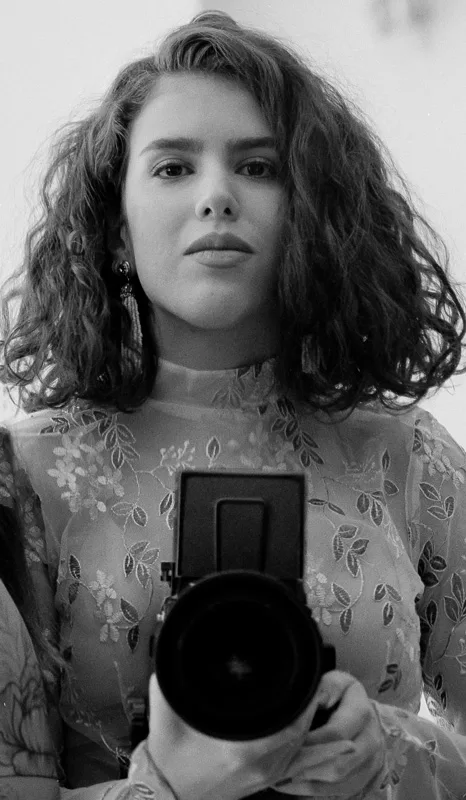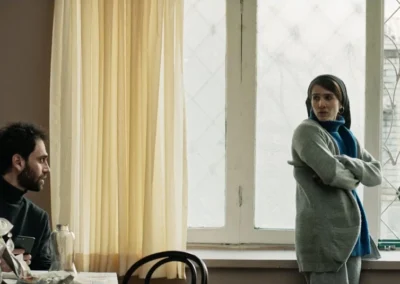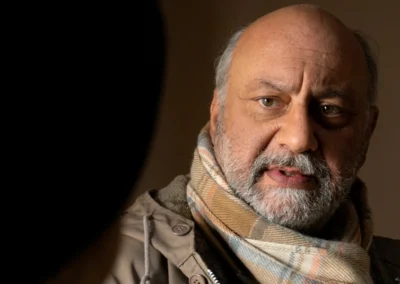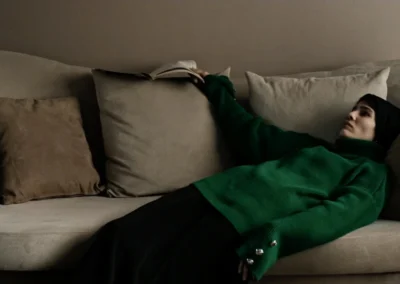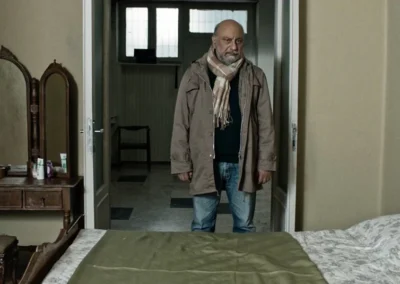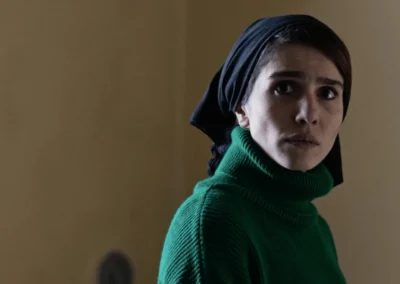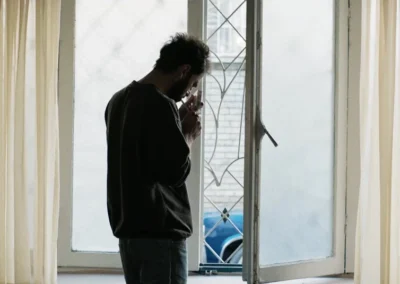A young couple live in an old house which is about to be demolished. While they are packing, the wife tells her husband about an anonymous man and his old car which he keeps parking in front of their house and stares at it. The anonymous old man hides something from his past.
VANISHED
(Napadid)
Iran 2023 / 18′
a film by
Nasim Tehrani
with
Babak Karimi
Marjan Etefaghian
Hamed Rasouli
| Screenplay | Behnam Navaei Nasim Tehrani |
| Director of Photography | Ali Tabrizi |
| Production Design | Nasim Tehrani Mostafa Moradian |
| Costume Design | Dorsa Naemi |
| Editor | Meysam Molaei |
| Composer | Ehsan Sadigh |
| Sound | Alireza Alavian |
| Producer | Farshad Homayounfar Nasim Tehrani |
| Distribution | Esen Studios |


BEST MUSIC - BEST ADAPTED SCREENPLAY

OFFICIAL SELECTIONS
- Capital City Film Festival (USA)
- IRAN:CI Film Festival (Czech Republic)
- NAHAL Short Film Festival (Iran)
- Festival Internazionale Inventa un Film (Italy)
- Pune Short Film Festival (India)
Nasim Tehrani
Nasim Tehrani was born in Tehran in 1998. She directed the short-film “Trucage” in 2018, an expression of her admiration for cinema and its ability to take the audience whenever and whatever. “Vanished” is her second short-film.
Director statement :
Tehran Streets is full of homes where sometimes long tragic stories happen; Homes with the absent owner or outwardly missing, maybe. The new regime appropriated many of these houses in the first years after Iran’s Islamic revolution. A significant part of these confiscated lands belonged to the artists (especially actors and directors) who the new regime banned from working. Subsequently, the government appropriated the central part of their properties.
Yet, this was just the beginning of another story; They had two choices: either leave their country and immigrate or stay in their motherland, with the price of isolation and silence. The regime didn’t allow them to appear in public places, so they needed to find a new identity (profession) and a new place to live. They yearned to return to their homes and lived with that house’s memories for years.
This is where the story and idea of the film started. A man returns to his old house, which the regime appropriated a long time ago, and now has another owner who will demolish it soon…
The exclusion continues until now, though. The regime is instituting the policy of rapidly cutting places, persons, and memories.
I’m focused on the idea of cutting off and vanishing important parts of Iran’s history. Still, some traces will remain despite all those removals; following these traces is exciting and vital to me. My main goal is to remind these subjects and find a suitable form to narrate them. I’m still researching this subject for my next project.
Director statement :
Tehran Streets is full of homes where sometimes long tragic stories happen; Homes with the absent owner or outwardly missing, maybe. The new regime appropriated many of these houses in the first years after Iran’s Islamic revolution. A significant part of these confiscated lands belonged to the artists (especially actors and directors) who the new regime banned from working. Subsequently, the government appropriated the central part of their properties.
Yet, this was just the beginning of another story; They had two choices: either leave their country and immigrate or stay in their motherland, with the price of isolation and silence. The regime didn’t allow them to appear in public places, so they needed to find a new identity (profession) and a new place to live. They yearned to return to their homes and lived with that house’s memories for years.
This is where the story and idea of the film started. A man returns to his old house, which the regime appropriated a long time ago, and now has another owner who will demolish it soon…
The exclusion continues until now, though. The regime is instituting the policy of rapidly cutting places, persons, and memories.
I’m focused on the idea of cutting off and vanishing important parts of Iran’s history. Still, some traces will remain despite all those removals; following these traces is exciting and vital to me. My main goal is to remind these subjects and find a suitable form to narrate them. I’m still researching this subject for my next project.


